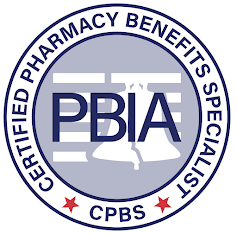CMS letter to pharmacy benefit management companies and other notes from around the interweb:
- CMS letter to pharmacy benefit management companies. The Centers for Medicare & Medicaid Services (CMS) values your partnership in providing health care coverage and access to essential treatments, including prescription medications, to millions of people. However, we are hearing an increasing number of concerns about certain practices by some plans and pharmacy benefit managers (PBMs) that threaten the sustainability of many pharmacies, impede access to care, and put increased burden on health care providers. We are writing to share these concerns and to encourage you to work with providers and pharmacies to alleviate these issues and safeguard access to care.
- NC wanted to share information on drug pricing. Here’s how it got shot down. For a brief few weeks, N.C. State Health Plan members had a rare window into the secretive world of drug pricing. Days before the health plan trustees met to discuss whether the plan could afford to continue covering obesity medications manufactured by pharmaceutical giant Novo Nordisk, staff posted online pages of pricing information they had prepared based on an analysis of expenditures. Notably, the documents estimated the discount, or “rebate,” Novo Nordisk had agreed to give NCSHP for these drugs — a piece of information that is considered a trade secret in the pharmaceutical industry.
- Plan Sponsors Have a Fiduciary Duty to Employees that Includes Scrutiny of PBM-Owned Rebate Aggregators. Drug manufacturer rebates can be a valuable tool for controlling the rising costs of prescription drugs. Most manufacturers offer a rebate program through which they agree to return a part of the drug’s list price to plans in exchange for access to the plans’ drug “formulary”. Rebates are intended to flow through to the plan sponsors and benefit patients, reducing their overall drug spend. The rebate process has been hijacked by PBMs and their sister-aggregators. PBMs utilize rebate aggregators to negotiate drug manufacturer rebates on behalf of the plans they administer. In 2022, just three PBMs along with their rebate aggregators, controlled 79 percent of the market. Some of the largest rebate aggregators include Zinc (owned by CVS Caremark), Ascent (owned by Express Scripts), and Emisar (owned by United Healthcare).
- Why such ‘high markups’? Senators seek drug price probe of insurers who own PBMs. The senators urged Inspector General Christi Grimm to determine if large insurance companies are using their vertically integrated pharmacies to evade federal requirements that limit the percentage of premium dollars spent on profits and administration, known as the Medical Loss Ratio, or MLR. The letter follows an investigation by the Wall Street Journal revealing significant markups of generic drugs at specialty pharmacies owned by CVS Aetna (which operates the Caremark PBM), Cigna (which owns Express Scripts) and UnitedHealthcare, which owns a PBM and specialty pharmacy. The Journal’s analysis found that the three companies charged up to twenty-seven times more than a generic reference pharmacy for a selection of nineteen drugs. For example, a monthly supply of the generic version of Tarcera, a lung cancer drug, costs $73 at the generic reference pharmacy, compared to $4,409 through Cigna.
